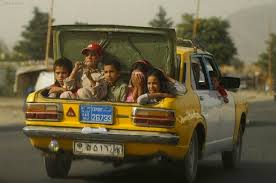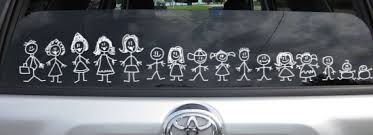So, along with “what’s the best car you’ve ever driven” and “what’s the fastest car you’ve ever driven” the question we most often get asked is “what cars hold their value the best?” To which the answer is, obviously, a 1963 Ferrari 250 GTO, which by a rough reckoning, is now worth about 20,000 times more than what it first sold for.
That, we guess, is not really a practical answer for most people, but this is one that is more useful to us. Family cars.
Calculating future depreciation on any car is tricky at best, and impossible at worst and even the experts get it wrong. You can occasionally get small blips in the market where a car, hugely in demand but thin on the ground, can actually increase in value second hand. That’s most common amongst mid-engined exotica with Italian badges and telephone-number horsepower figures, but it has been known to happen with relatively more humble cars too from time to time.
Car value estimation
It’s best not to bet on it though, and the basic rule of thumb is that all cars will lose between 40 and 60 per cent of their new value over the first three years of their life. That’s a figure with a big, broad 20 per cent gap in the middle, obviously, so the trick here is to find a car, one that you like and would wish to own, but which will come in at the highest possible end of that 20 per cent gap. How do you do that?
Oddly enough, it seems that we should have been listening to our kids all along. In a UK-based survey for classifieds website Auto Trader, it was found that 78 per cent of parents bought a new car because of their kids. Whether because it was their first child and they needed a bigger car, or their kids were growing up and they needed more space or just wanted something safer, the kids triggered the purchase.
The "real" factors
 And that reveals a deep and useful truth about second hand car values. It’s not about the shiny paint work, nor the extra equipment nor the engine’s horsepower. Ultimately, limiting your exposure to depreciation is about space in the back seats and running costs – the things that matter most to family buyers. According to the Auto Trader survey, “after safety, parents were most concerned with the size and space of the new car they were buying so they could get extra boot space or more seats (25 per cent), how comfortable it would be (23 per cent) and how reliable (19 per cent) – entertainment systems were only considered important by 2 per cent of parents.”
And that reveals a deep and useful truth about second hand car values. It’s not about the shiny paint work, nor the extra equipment nor the engine’s horsepower. Ultimately, limiting your exposure to depreciation is about space in the back seats and running costs – the things that matter most to family buyers. According to the Auto Trader survey, “after safety, parents were most concerned with the size and space of the new car they were buying so they could get extra boot space or more seats (25 per cent), how comfortable it would be (23 per cent) and how reliable (19 per cent) – entertainment systems were only considered important by 2 per cent of parents.”
So, you want to make sure you’re car is worth more three years down the line? Get something with a big boot, lots of legroom and a small motor tax bill. Almost any compact seven-seat MPV is a good bet right now, and more and more families are cottoning on to the idea of a mid-size estate car too. Beware of the current fashion for trendy small SUVs though. They actually tend to have quite small back seats and boots, and aren’t half so practical as people think they are. Family buyers aren’t daft and do their research, so expect residual values to begin to reflect that fact. It’s also worth considering the width of the back seats – many families need a car that can carry three child car safety seats across the back, something which many mainstream cars cannot do, so choose carefully even if you don’t need that function yourself.
So, keep the kids happy and you’ll keep their parents happy and that will mean you’ve got a car that people will want to buy, which is sort of the whole point of depreciation avoidance. Perhaps it’s best not to listen to the kids too directly though. According to the survey, what they mostly want in a car are turbo buttons, ejector seats and flame filled exhausts, perhaps unsurprisingly alongside entertainment systems.
Other important factors
 Keeping an eye on the EuroNCAP safety ratings is probably not a bad idea as well. They have become tougher in recent years, which means some models are struggling to achieve the desirable five-start safety rating. While it’s probably not a deal-breaking issue for most family buyers, for many it may just be the tipping point between one car and another if all other things are equal.
Keeping an eye on the EuroNCAP safety ratings is probably not a bad idea as well. They have become tougher in recent years, which means some models are struggling to achieve the desirable five-start safety rating. While it’s probably not a deal-breaking issue for most family buyers, for many it may just be the tipping point between one car and another if all other things are equal.
Environmental performance may play a part, over and above mere running costs too. Toyota recently surveyed the customers who buy its hybrid Prius model and found that a surprising number were in their mid to late fifties and had just become grandparents. Many of them were choosing a hybrid car because the arrival of that third generation was prickling their conscience about what sort of world is being left for them.
After all, the children are our future…